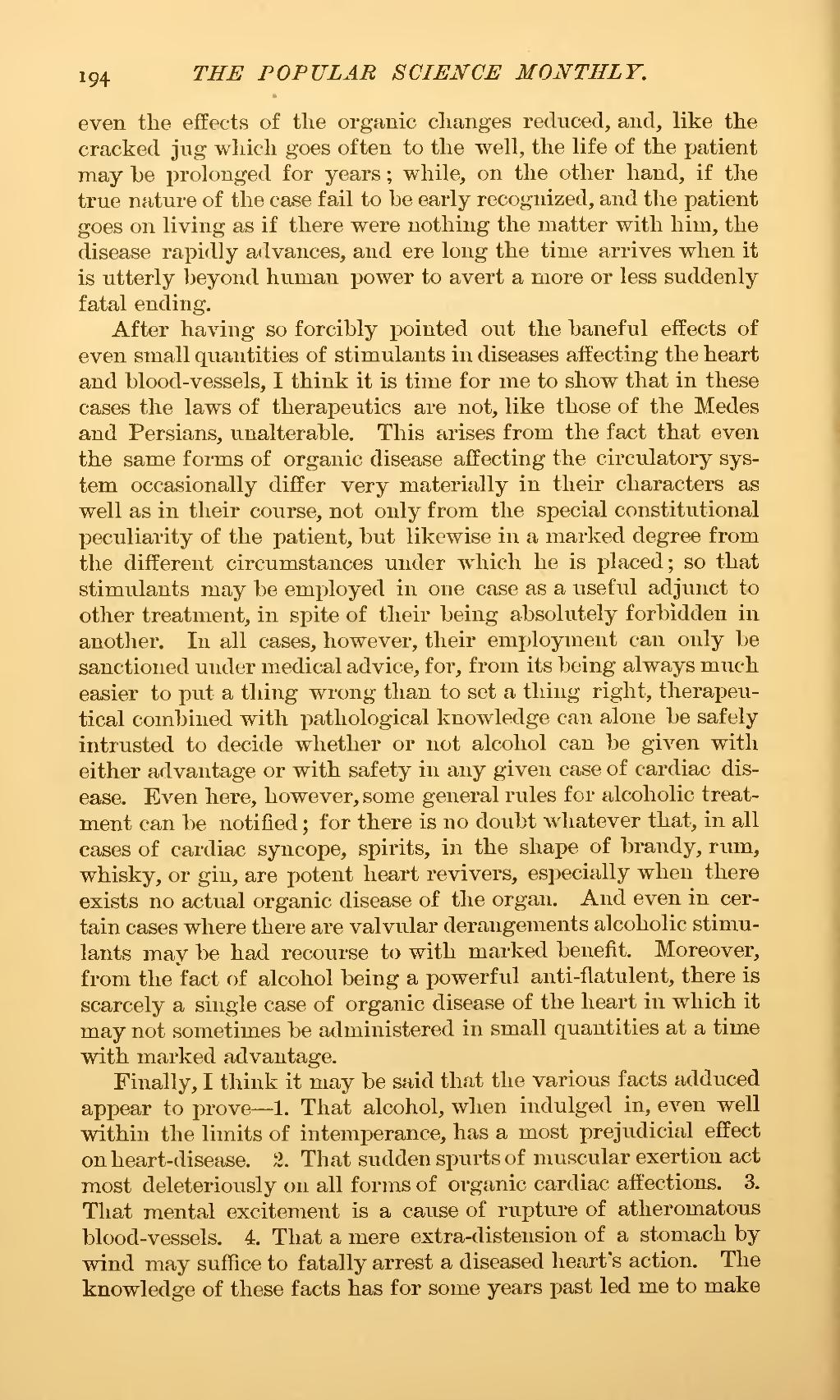even the effects of the organic changes reduced, and, like the cracked jug which goes often to the well, the life of the patient may be prolonged for years; while, on the other hand, if the true nature of the case fail to be early recognized, and the patient goes on living as if there were nothing the matter with him, the disease rapidly advances, and ere long the time arrives when it is utterly beyond human power to avert a more or less suddenly fatal ending.
After having so forcibly pointed out the baneful effects of even small quantities of stimulants in diseases affecting the heart and blood-vessels, I think it is time for me to show that in these cases the laws of therapeutics are not, like those of the Medes and Persians, unalterable. This arises from the fact that even the same forms of organic disease affecting the circulatory system occasionally differ very materially in their characters as well as in their course, not only from the special constitutional peculiarity of the patient, but likewise in a marked degree from the different circumstances under which he is placed; so that stimulants may be employed in one case as a useful adjunct to other treatment, in spite of their being absolutely forbidden in another. In all cases, however, their employment can only be sanctioned under medical advice, for, from its being always much easier to put a thing wrong than to set a thing right, therapeutical combined with pathological knowledge can alone be safely intrusted to decide whether or not alcohol can be given with either advantage or with safety in any given case of cardiac disease. Even here, however, some general rules for alcoholic treatment can be notified; for there is no doubt whatever that, in all cases of cardiac syncope, spirits, in the shape of brandy, rum, whisky, or gin, are potent heart revivers, especially when there exists no actual organic disease of the organ. And even in certain cases where there are valvular derangements alcoholic stimulants may be had recourse to with marked benefit. Moreover, from the fact of alcohol being a powerful anti-flatulent, there is scarcely a single case of organic disease of the heart in which it may not sometimes be administered in small quantities at a time with marked advantage.
Finally, I think it may be said that the various facts adduced appear to prove—1. That alcohol, when indulged in, even well within the limits of intemperance, has a most prejudicial effect on heart-disease. 2. That sudden spurts of muscular exertion act most deleteriously on all forms of organic cardiac affections. 3. That mental excitement is a cause of rupture of atheromatous blood-vessels. 4. That a mere extra-distension of a stomach by wind may suffice to fatally arrest a diseased heart's action. The knowledge of these facts has for some years past led me to make
